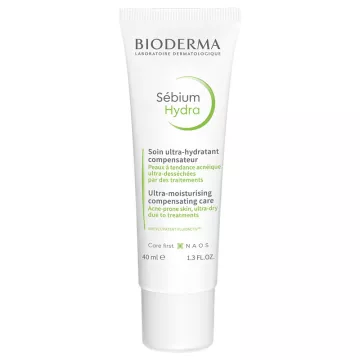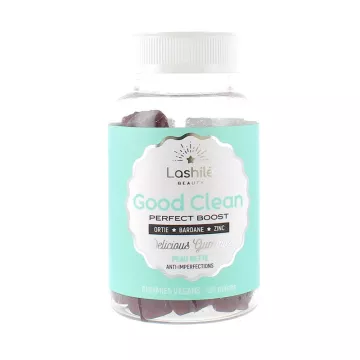



Acne is often the result of a combination of factors, including hormonal, genetic, environmental and lifestyle factors. Hormones, particularly androgens, can cause excessive sebum production, leading to clogged pores and the appearance of pimples. Genetics also play a key role, with certain inherited traits predisposing to more acne-prone skin. Environmental factors such as pollution and humidity can aggravate acne, as can certain behaviors such as smoking or a diet rich in sugars and dairy products.
For acne sufferers, it's crucial to adopt an adapted skincare routine that includes non-comedogenic products. Gentle but effective cleansing of the skin should be carried out morning and night with a salicylic- or glycolic-based cleanser to help unclog pores. Regular application of a product containing benzoyl peroxide or salicylic acid can also help reduce bacteria and inflammation. It is important to moisturize the skin with a cream suitable for oily skin to avoid the overproduction of sebum often caused by dehydration.
Diet plays a significant role in skin appearance. For acne-prone skin, we recommend limiting consumption of dairy products and carbohydrates with a high glycemic index, which can stimulate excessive sebum production. Eating a diet rich in fresh fruit and vegetables, omega-3s (found in oily fish such as salmon) and zinc (found in nuts, seeds and lean meat) can help reduce inflammation and improve skin health.
Moisturizing is essential to maintain the skin's natural balance and prevent irritation, which can exacerbate acne. Using a lightweight, non-comedogenic moisturizer is vital for acne-prone skin, as it can help regulate sebum production and support the skin barrier without clogging pores. Drinking enough water daily is also crucial to help eliminate toxins and promote healthy skin.
Dermatological treatments for acne are constantly evolving with technological and medical advances. Recent options include laser treatments and photodynamic therapy, which target both bacteria reduction and improved skin texture. Recent research is also looking at the impact of the skin microbiome on acne, leading to the development of topical probiotics that can help restore the natural balance of bacteria on the skin.
Yes, some make-up products can aggravate acne, especially if they are comedogenic. It's important to choose products that are non-comedogenic and specially formulated for acne-prone skin. Products containingsalicylic acid can help treat breakouts while providing coverage. Always remove make-up carefully before bedtime to avoid clogged pores.
Hormonal variations, particularly during adolescence, menstrual cycles, pregnancy and menopause, can influence sebum production and aggravate acne. Androgens stimulate the sebaceous glands to produce more sebum, leading to clogged pores. To manage these fluctuations, hormonal treatments such as oral contraceptives can be prescribed by a dermatologist.
Acne scars can be treated by several methods, depending on their severity. Chemical peels, microdermabrasion and laser treatments are effective in reducing superficial scars. Techniques such as subcision and microneedling are often used for deeper scars. It is advisable to consult a dermatologist to determine the most appropriate treatment.
Skin pH plays a crucial role in maintaining the skin's protective barrier and preventing breakouts. Skin care products should have a balanced pH, generally around 5.5, to avoid irritating the skin and aggravating acne. Using pH-balanced cleansers and toners can help maintain healthy skin and prevent acne.
Yes, stress can have a significant impact on acne. Stress stimulates the production of cortisol, a hormone that can increase sebum production and cause breakouts. In addition, stress can compromise the skin's ability to regenerate and heal. Adopting stress management techniques, such as meditation, exercise and good sleep hygiene, can help improve skin condition.